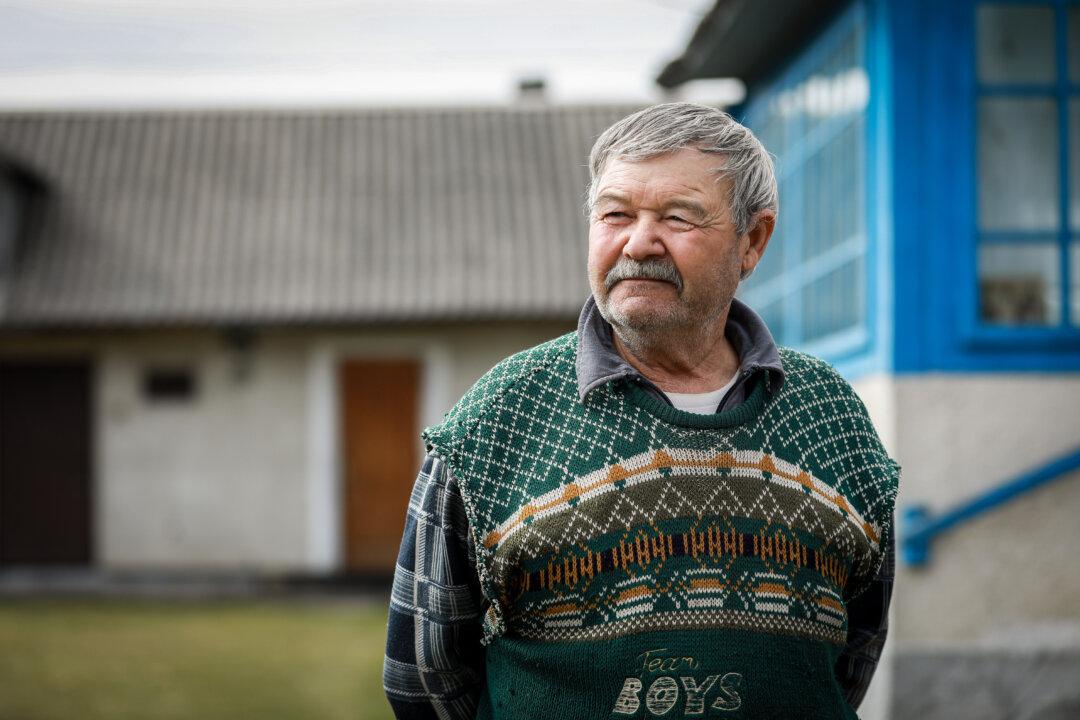KOTY, Ukraine—For decades, gunfire and explosions have not surprised the residents of this small village deep in western Ukraine.
The sounds of explosions from artillery training rang out on March 25 from the sprawling Yavoriv military base, the guarded entrance to which lies across the road from the house of Viktor Pokrovskiy.





